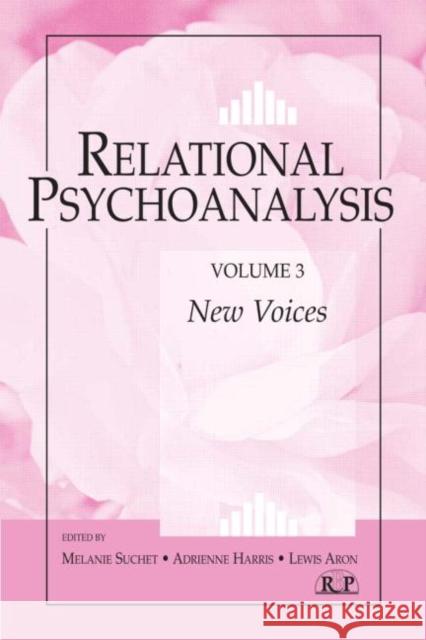Relational Psychoanalysis, Volume 3 : New Voices » książka
Relational Psychoanalysis, Volume 3 : New Voices
ISBN-13: 9780881634563 / Angielski / Miękka / 2007 / 330 str.
Relational Psychoanalysis, Volume 3 : New Voices
ISBN-13: 9780881634563 / Angielski / Miękka / 2007 / 330 str.
(netto: 232,23 VAT: 5%)
Najniższa cena z 30 dni: 227,34
ok. 16-18 dni roboczych.
Darmowa dostawa!
< P> Relational psychoanalysis has revivified psychoanalytic discourse by attesting to the analyst& #8217; s multidimensional subjectivity and then showing how this subjectivity opens to deeper insights about the experience of the analysand.& nbsp; Volume 3 of the Relational Psychoanalysis Book Series enlarges this ongoing project in significant ways.& nbsp; Here leading relational theorists explore the cultural, racial, class-conscious, gendered, and even traumatized anlagen of the self as pathways to clinical understanding.& nbsp; < br> & nbsp; < br> < i> Relational Psychoanalysis: New Voices< /i> is especially a forum for new relational voices and new idioms of relational discourse.& nbsp; Established writers, Muriel Dimen, Sue Grand, and Ruth Stein among them, utilize aspects of their own subjectivity to illuminate heretofore neglected dimensions of cultural experience, of trauma, and of clinical stalemate.& nbsp; A host of new voices applies relational thinking to aspects of race, class, and politics as they emerge in the clinical situation.& nbsp; A final section of & #8220; Experiments in a New Key& #8221; highlights nontraditional writing in which authors use innovative narrative techniques and writing styles to broaden our very concept of psychoanalytic writing.& nbsp; Contributions encompass fiction inspired by clinical material; nontraditional uses of the self in theorizing about the Other; the interweaving of analyst and patient narratives when both have lived in the same & #8220; wounded place of trauma& #8221; ; and the working through of relational entanglement with a fictional text.& nbsp; < br> & nbsp; < br> The contributors to < i> Relational Psychoanalysis: New Voices< /i> are boldly unconventional & #8211; in their topics, in their modes of discourse, in their innovative and often courageous uses of self.& nbsp; Collectively, they convey the ever widening scope of the relational sensibility.& nbsp; The & #8220; relational turn& #8221; keeps turning.& nbsp; & nbsp; < /P>











